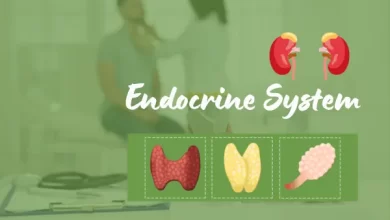
In today’s article, we will explore the fascinating topic of endocrine weight loss. Our body’s endocrine system plays a crucial role in regulating various functions, including metabolism and weight management. Understanding the influence of hormones on our body weight can provide valuable insights into effective strategies for weight loss and maintenance.
1. Introduction to Endocrine Weight Loss
Endocrine Weight Loss: Maintaining a healthy weight can be challenging, and numerous factors can contribute to weight gain or hinder weight loss efforts. While diet and exercise are commonly associated with weight management, hormonal imbalances within the endocrine system can also play a significant role.
2. Understanding the Role of Hormones in Weight Management
The Endocrine Weight Loss System and Its Functions
The Endocrine Weight Loss system consists of various glands that produce hormones responsible for regulating bodily functions. These hormones act as messengers, traveling through the bloodstream and interacting with specific cells or organs to control various processes, including metabolism.
Hormones that Impact Weight
Endocrine Weight Loss: Several hormones have a direct impact on weight management. Thyroid hormones, such as thyroxine (T4) and triiodothyronine (T3), influence metabolism and energy expenditure. Insulin, produced by the pancreas, regulates blood sugar levels and fat storage. Hormones like estrogen and progesterone in women, and testosterone in men, also play a role in weight regulation.
3. Hormonal Imbalances and Weight Gain
Hypothyroidism and Weight Gain
Hypothyroidism is a condition characterized by an underactive thyroid gland, leading to decreased thyroid hormone production. This condition can cause a slower metabolism, resulting in weight gain or difficulty losing weight.
Polycystic Ovary Syndrome (PCOS) and Weight Gain
PCOS is a hormonal disorder that affects women, often resulting in hormonal imbalances and ovarian cysts. It can lead to weight gain, insulin resistance, and difficulties in weight management.
Cushing’s Syndrome and Weight Gain
Endocrine Weight Loss: Cushing’s syndrome occurs when the body is exposed to high levels of the hormone cortisol for an extended period. This can lead to weight gain, particularly in the abdominal area, along with other symptoms such as muscle weakness and fatigue.
4. Hormonal Treatments for Weight Loss
Thyroid Hormone Replacement Therapy
In cases of hypothyroidism, thyroid hormone replacement therapy may be prescribed to restore normal hormone levels. This treatment can help regulate metabolism and support weight loss efforts.
Hormonal Birth Control for PCOS
For women with PCOS, hormonal birth control can help regulate hormone levels and manage symptoms. It may also assist in weight management by improving insulin sensitivity.
Medications for Cushing’s Syndrome
In cases of Cushing’s syndrome, medications may be prescribed to lower cortisol levels and alleviate symptoms. This can indirectly contribute to weight loss by addressing the hormonal imbalance.
5. Lifestyle Factors Affecting Hormonal Balance and Weight
Diet and Nutrition
Endocrine Weight Loss: Maintaining a balanced diet rich in nutrients is essential for hormonal balance and weight management. Consuming whole foods, managing portion sizes, and avoiding excessive sugar and processed foods can support healthy weight loss.
Physical Activity and Exercise
Regular exercise can help regulate hormone levels and support weight loss. A combination of cardiovascular exercises, strength training, and flexibility exercises can contribute to a well-rounded fitness routine.
Stress and Sleep
Endocrine Weight Loss: Chronic stress and inadequate sleep can disrupt hormonal balance and contribute to weight gain. Implementing stress management techniques and prioritizing quality sleep can positively impact hormone levels and weight management.
6. Managing Hormonal Weight Gain
Consulting with a Healthcare Professional
If you suspect a hormonal imbalance is contributing to your weight gain, it is crucial to consult with a healthcare professional. They can perform necessary tests, evaluate your symptoms, and develop an appropriate treatment plan.
Developing a Personalized Treatment Plan
A personalized treatment plan may involve a combination of hormone therapy, lifestyle changes, and medications. The goal is to restore hormonal balance and support sustainable weight loss.
Monitoring and Adjusting Hormone Levels
Regular monitoring of hormone levels is necessary to ensure optimal treatment outcomes. Based on test results, adjustments to medication dosages or treatment plans may be made to achieve desired weight loss goals.
Incorporating Healthy Lifestyle Habits
In addition to hormone treatments, adopting healthy lifestyle habits is vital for long-term weight management. This includes maintaining a balanced diet, engaging in regular physical activity, managing stress, and getting adequate sleep.
7. The Role of Diet and Exercise in Hormonal Weight Loss
Balanced Eating for Hormonal Balance
Endocrine Weight Loss: A balanced diet for hormonal weight loss should include a variety of nutrient-dense foods, such as fruits, vegetables, lean proteins, whole grains, and healthy fats. It’s important to focus on portion control and avoid restrictive diets that may disrupt hormone balance.
Exercise and Hormonal Regulation
Regular exercise, including cardiovascular workouts, strength training, and flexibility exercises, can help regulate hormone levels. Physical activity stimulates the release of endorphins, reduces stress, and supports weight loss efforts.
8. Addressing Hormonal Weight Loss Challenges
Emotional and Psychological Support
Weight loss journeys can be emotionally challenging. Seeking support from friends, family, or professionals can provide the necessary encouragement and guidance to overcome obstacles and maintain motivation.
Dealing with Plateaus
Weight loss plateaus are common during the journey. Instead of getting discouraged, it’s important to reassess diet and exercise routines, introduce new challenges, or seek professional advice to break through plateaus.
Long-Term Weight Maintenance
Sustainable weight loss is not just about reaching a target weight but also maintaining it in the long term. This requires a continued focus on healthy habits, regular monitoring, and flexibility to adapt to changing needs.
9. Conclusion
Endocrine weight loss involves understanding the impact of hormonal imbalances on our body weight and developing a comprehensive approach that combines hormone treatments, lifestyle modifications, and healthy habits. Endocrine Weight Loss and By addressing the root causes of hormonal weight gain and adopting sustainable strategies, individuals can achieve successful weight loss and improve overall well-being.
10. FAQs
1. Can hormonal imbalances alone cause weight gain? Hormonal imbalances can contribute to weight gain, but they are not the sole factor. A combination of factors, including diet, physical activity, and genetics, also play a role.
2. How long does it take to see results with hormonal treatments for weight loss? The timeline for seeing results with hormonal treatments can vary depending on individual circumstances. It’s important to follow the prescribed treatment plan and be patient as the body adjusts.
3. Can lifestyle changes alone correct hormonal imbalances? In some cases, adopting healthy lifestyle habits can help restore hormonal balance. However, for significant imbalances, medical interventions may be necessary.
4. Are there any natural remedies for hormonal weight loss? Certain lifestyle changes, such as stress management, regular exercise, and a balanced diet, can support hormonal balance and weight loss. However, it’s important to consult with a healthcare professional for personalized guidance.
5. Can hormonal weight loss be maintained in the long term? Yes, maintaining hormonal weight loss in the long term is possible by continuing healthy lifestyle habits, regular monitoring, and seeking support when needed.




